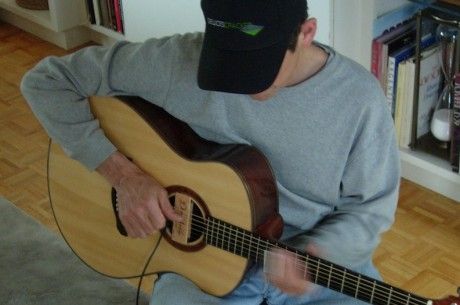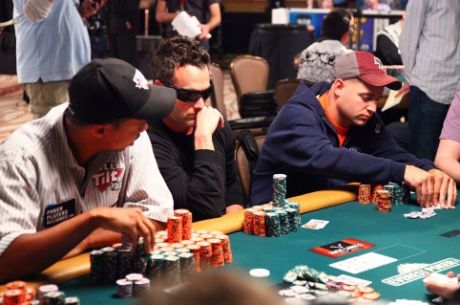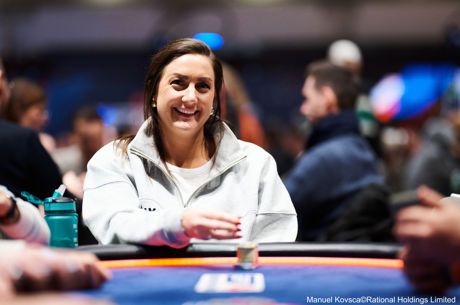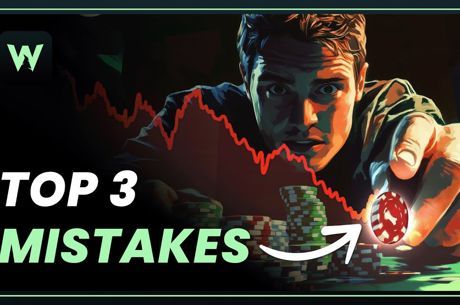Look Back on the Strategy, Not the Tragedy; or, Bad Beats Be Gone!
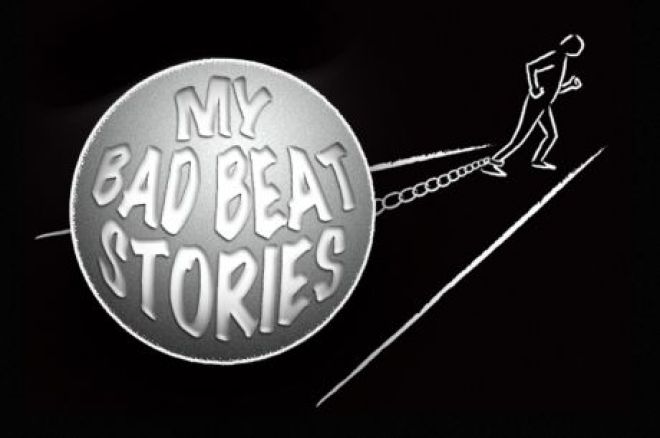
Poker author and coach Tommy Angelo is the author of two well regarded poker books, Elements of Poker and A Rubber Band Story and Other Poker Tales, as well as numerous poker articles for various outlets. Angelo is known in particular for helping players deal with the mental challenges poker provides, including overcoming tilt. Today Angelo shares a story in which he and two of his characters define, discuss, and debate bad beats.
“What, precisely, is a bad beat?” asked Alfonzo Calibri.
“A bad beat is when you lose a hand during which at some point you had a high statistical probability of winning the hand,” answered Charlie Archer.
“I don’t think a bad beat is defined by odds,” I said, “but rather, by pain.”
Alf and Charlie are characters in the book I’m writing, called Painless Poker. I told them about my new column at PokerNews and they offered to help. So I asked them how they handle bad beats, and as is typical, Alf had to begin the discussion by defining terms.
“You are correct,” said Alf. “All bad beats have a statistical component, and an emotional one. And unfortunately, a long reach. The agony brought on by a bad beat is not confined to the injured party. I am speaking now of the most annoying sound on earth: Bad beat stories.”
Alf designs museum exhibits by day and plays live poker in the evening. His games are no-limit hold’em, limit hold’em, and pot-limit Omaha.
“So Alf,” I said. “Should I assume that you never tell bad beat stories?”
“You most certainly should,” he said.
“Not even to yourself?”
His head tipped sideways. “Recall that I said it was the sound that I object to. The vocalization. The intrusion. I am not saying that it is an unreasonable action for one to bemoan the loss of an exceptionally unlucky pot. What I am saying is that I do not want to hear about it.”
“I must admit,” said Charlie, “I do tell my share of bad beat stories.” Charlie multi-tables $2/4 and $3/6 no-limit hold’em for a living. “But then, I live with two other online grinders, and both of them are big bemoaners, so it seems only fair that they should have to listen to my bad beat stories, too.”
Alf said, “You and your roommates are propagating a pathetic habit, simply out of habit. And inferiorly so, I might add. Your bad beat stories cannot compare to those of live poker.”
“Pardon me?” said Charlie.
“A bad beat online is merely a statistical event.” Alf raised the pitch of his voice. “Oh, boo hoo. I was a 45-to-1 favorite to win, but I lost. Oh, boo hoo. The inevitable happened.”
“I can see Alf’s point,” I said. “I can actually enjoy listening to a bad beat story, but only if it contains extenuating circumstances that heap on the hurt. One-outers and runner-runners alone won’t hold my interest. But if the story involves a spilled drink or a dealer mistake or an opponent misreading his hand, that’s what makes for a good bad beat story in my opinion, and those types of things can’t happen online.”
While I was talking, I could feel Charlie getting more and more upset.
“Let me ask you this,” said Charlie. “Have you ever heard of anyone playing way over their head online and losing a $10,000 pot because they couldn’t call the final $50 all-in raise because their internet connection was lost in mid-hand because a storm blew a tree down and knocked their cable out?”
“I take it back,” I said. “That is an excellent online bad beat story. Did that happen to you?”
“Yep.”
“Ouch.”
“Yep.”
Alf said, “I would agree that that was a good bad beat story.” Charlie and I looked at Alf suspiciously. “Because it ended quickly,” he added. We all smiled.
I said, “I have a question for you, Alfonzo. What is it that you don’t like about being told bad beat stories?”
“It’s a sensation of, of… rudeness, and embarrassment. As if someone lifted their shirt to show me a scar. Well, if I want to see poker scars, I can lift my own shirt.”
“Which leads me to my next question,” I said, “about the bad beat stories you tell yourself.” Alf shifted in his chair.
“If you lose a brutal pot,” I said, “and your mind keeps telling you how unlucky you were, then aren’t you really just telling and retelling a bad beat story to yourself? And is that any less annoying or pathetic than someone else dumping their bad beat stories on you?”
Alf paused for a moment and said, “You make a valid point, in theory.”
Charlie said, “You also make it sound like we can just decide what we want to think about.”
“More accurately,” said Alf, “He is suggesting that we can decide what not to think about.”
“Bingo,” I said.
“But we have to review our hands,” said Charlie, “to study them, and learn what we did wrong, and what we could have done better. And that includes painful hands.”
“Yes and no,” I said. “Yes, we need to review hands. No, it doesn’t have to hurt.”
“If I understand you correctly,” said Alf, “You are saying that we can look back on the strategy, but without the tragedy.”
“Double bingo!” I said. “And online or live, it’s all the same. There’s the hand. And there’s the story you write in your head after the hand, about what happened. A bad beat story is just that, a story. And you are the writer. Which means you can revise the story. You can strip it down to only the facts, and leave out the painful feelings. Or you can just wad up the whole story, pain and all, and chuck in the trash, never to be told again.”
“I do wish that I could do that,” said Charlie. “I guess I’m not a writer.”
“You are most definitely a writer of bad beat stories, Charlie,” I said. “And a good one at that. What you haven’t learned yet is how to be an editor. You need to get yourself a red pen.”
“Perhaps we should procure a million red pens and pass them around,” said Alf.
“And what would you do with yours?”
“I would not need one because as I said, I do not tell bad beat stories.”
“But you did say that you have poker scars.”
“I did.”
“You probably didn’t know this, Alf, but red pens can make scars disappear.”
“I beg to differ,” said Alf. “I will play along with your analogy far enough to concede that I could in theory choose to not dwell on epic bad beats from my past, but that is not the same as removing the bad beat itself. What happened happened. That cannot be changed.”
“If you think so,” I said.
To join Tommy’s mailing list and receive updates on his upcoming third book, Painless Poker, plus random musings and advice, click here immediately.
Get all the latest PokerNews updates on your social media outlets. Follow us on Twitter and find us on both Facebook and Google+!

